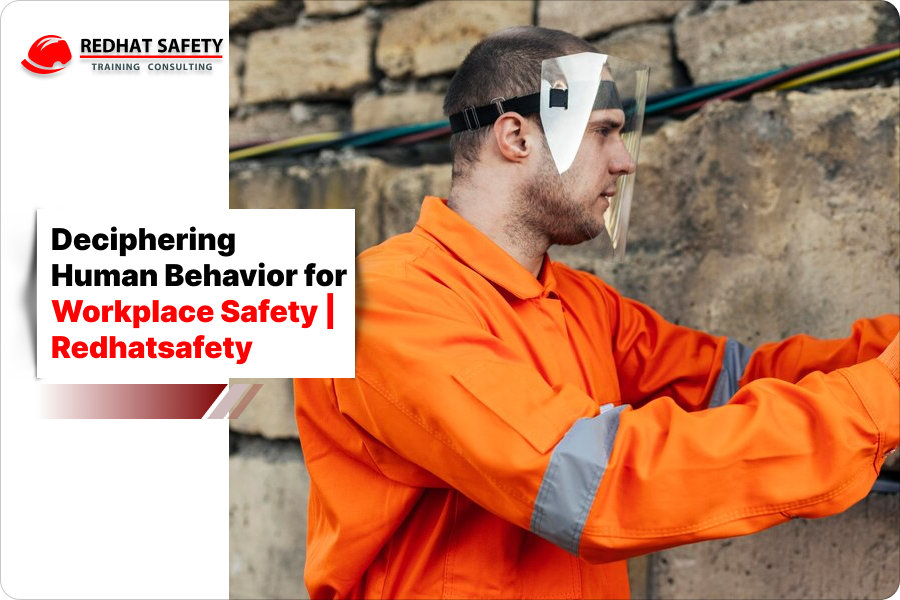-
Unraveling Psychological Insights for a Safer Workplace Environment | Redhatsafety
Unlocking the Psychology of Workplace Safety: Deciphering Human Behavior in Organizational Settings
In the realm of workplace safety, understanding the nuances of human behavior is crucial. As organizations strive to create a safe and healthy work environment, delving into the psychology of safety becomes an essential exploration. This article aims to unravel the complexities of human behavior in the workplace and shed light on how psychological factors significantly influence safety outcomes.
The Human Factor in Safety:
The foundation of any effective safety program lies in understanding the human element. Recognizing the intricacies and diversity of human behavior is the initial step in fostering a strong safety culture. Individuals bring their unique experiences, attitudes, and perceptions into the workplace, all of which play a vital role in shaping safety-related decisions.
Cognitive Biases and Decision-Making:
An understanding of how cognitive biases impact decision-making is crucial for enhancing workplace safety. From the optimism bias that leads individuals to underestimate risks to the conformity bias influencing group dynamics, these biases can have a significant impact on safety-related choices. Identifying and addressing these biases is essential for promoting a safer work environment.
Risk Perception:
The perception of risk varies from person to person and is influenced by factors such as familiarity, control, and personal experience. Examining how individuals perceive and evaluate risks can offer valuable insights for tailoring safety interventions. It is not just about the objective risks present but also about how these risks are subjectively perceived by employees.
Motivation and Incentives:
Human behavior is closely linked to motivation. Understanding what motivates individuals to follow safety protocols or, conversely, take risks is key. Whether it is the intrinsic motivation stemming from a personal commitment to safety or external factors like rewards and recognition, grasping these motivators can shape effective safety strategies.
Communication Strategies:
Effective communication plays a crucial role in influencing behavior. This section explores how communication styles, the framing of safety messages, and the use of positive reinforcement can impact employee behavior. Clear and consistent communication fosters a shared understanding of safety expectations and encourages a collective commitment to a safe workplace.
Social Dynamics and Peer Influence:
The workplace functions as a social ecosystem where peer influence can sway behavior. Examining how social dynamics and group norms shape safety practices is vital. Strategies for leveraging positive peer pressure and fostering a collective responsibility for safety are explored in this section.
Stress and Mental Health:
Addressing the psychological aspects of safety involves acknowledging the impact of stress and mental health on behavior. High stress levels or mental health issues can impair decision-making and increase the likelihood of accidents. Implementing strategies to support employee well-being contributes to a safer and more resilient workforce.
Integrating Psychological Insights into Safety Programs:
It is essential for organizations to incorporate psychological insights into their safety programs. From customized training programs to integrating behavioral cues in safety audits, leveraging an understanding of human behavior enhances the effectiveness of safety initiatives.
In Conclusion:
The psychology of human behavior offers a powerful perspective for organizations looking to cultivate a culture of safety in the workplace. By recognizing and addressing the psychological factors that influence decision-making, risk perception, and motivation, organizations can establish environments where safety is not merely a set of rules but a shared commitment ingrained in the workplace culture.
Behavior-Based Safety Training & Consultation @ Redhatsafety
Initiate a conversation with our experts at Redhatsafety to explore how we can collaboratively enhance your safety culture through the implementation of safe behavioral practices. Connect with us today to schedule a meeting and implement behavior-based safety in your workplace.
For more information, please contact our corporate team @ +91 96770 52512 or email us at info@redhatsafety.com











